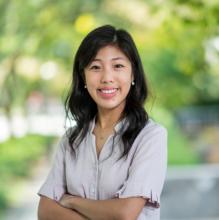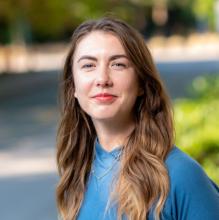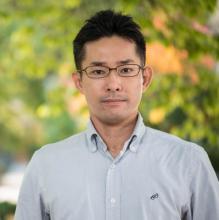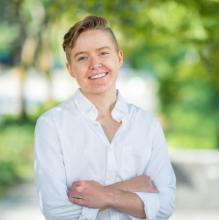A more meaningful, fundamental human need is often overlooked in the provision of settlement services: a sense of belonging. My dissertation research addresses this forgotten need for belonging, identified during my extensive engagement with a local refugee community, in collaboration with the community.
Research Description
In efforts to assist newly arrived refugees to integrate into Canadian society, government agencies and community organizations have provided newcomers with specialized support services in housing, language, employment, education, and health. While these supports address material and essential needs, a more meaningful, fundamental human need is often overlooked in the provision of settlement services: a sense of belonging. My dissertation research addresses this forgotten need for belonging, identified during my extensive engagement with a local refugee community, in collaboration with the community. The purpose of my research is to explore the meaning of sense of belonging as perceived by members of a local refugee community and to increase their sense of belonging in collaborative and culturally responsive ways. The methodology of participatory action research (PAR) and the method of Photovoice are used as culturally grounded approaches to conduct with rather than on or for the community, under the assumption that people have knowledge and insights about their own practices and circumstances to bring about positive changes to their lives. Consistent with PAR principles, Photovoice offers powerful means for expression and creativity to capture the salient experiences of participants, and place the marginalized in the position of expertise to communicate their community’s perceived realities. The community leader and I facilitate communicative social space sessions to encourage dialogue around sense of belonging and develop a community-based program with the community.
What does being a Public Scholar mean to you?
Being a Public Scholar provides me with the opportunity to represent and engage in knowledge generation with the community I have had the privilege to be part of. This means establishing legitimacy and validity of community members’ knowledge and social practices, and promoting their agency to achieve sustainable and productive outcomes for the community. The Public Scholars Initiative allows me to extend and deepen my relationship with the community, while highlighting the benefits of conducting participatory action research (PAR) to the academy.
In what ways do you think the PhD experience can be re-imagined with the Public Scholars Initiative?
The Public Scholars Initiative (PSI) recognizes the value of the collaborative scholarship and knowledge production in the work of doctoral student researchers and helps maximize their potential as a scholar and the impact of their research. Public Scholars are provided with the opportunity to optimize their doctoral education process by building an online presence, engaging with the larger community, attending professional skills workshops, and networking with other Public Scholars.
How do you envision connecting your PhD work with broader career possibilities?
The School Psychology program places an emphasis on the integration of theory, research and clinical skills to broaden the career readiness of its doctoral students as practitioners, supervisors, researchers, and leaders in the field. In addition to my graduate training and education in school psychology, I integrate the principles of community psychology and my professional and personal commitment to social justice in my doctoral work to enhance my competence as a scientist-practitioner. This involves developing my clinical practice with marginalized and underserved populations and cultivating my learning in community-based mental health, culturally responsive practices, and critical and interpretive qualitative research methodologies.
How does your research engage with the larger community and social partners?
My research directly engages with a local community that continues to grow rapidly with the recent arrival of refugees/newcomers in Vancouver. In this participatory action research project, members of the community are invited to be co-researchers and participants of their own research. In collaboration with the community, this project will create a communicative social space that welcomes people regardless of their status. The external partnership with the Mennonite Central Committee allows the opportunity to explore alternative avenues to support the community. Through PSI, I hope to collaborate with other refugee/newcomer organizations to engage the larger refugee/newcomer community in Canada.
Why did you decide to pursue a graduate degree?
I come from humble beginnings, and having access to higher education is a tremendous privilege that I do not take for granted. Going to graduate school allows me to pursue not only my career goal of becoming a well-rounded psychologist, but also my dreams and passion of helping others and giving back to the community I can personally relate to. Prior to graduate school, I had extensive experience working with diverse children and youth in research and educational settings. I wanted to gain the knowledge and skills to make an impact at both individual and systems levels.
Why did you choose to come to British Columbia and study at UBC?
The PhD in School Psychology program at UBC is one of the only two Canadian Psychological Association (CPA) accredited programs in the country, and in a top Faculty of Education in the world. I was also drawn to the program’s scientific-practitioner model which prepares students to work in schools as well as academic, research, community, and clinical settings. Additionally, the large number of multicultural communities in the regional district and metropolitan area of Vancouver provides a rich opportunity to pursue my interest and passion in working with diverse populations.
Being a Public Scholar provides me with the opportunity to represent and engage in knowledge generation with the community I have had the privilege to be part of. This means establishing legitimacy and validity of community members’ knowledge and social practices, and promoting their agency to achieve sustainable and productive outcomes for the community.




